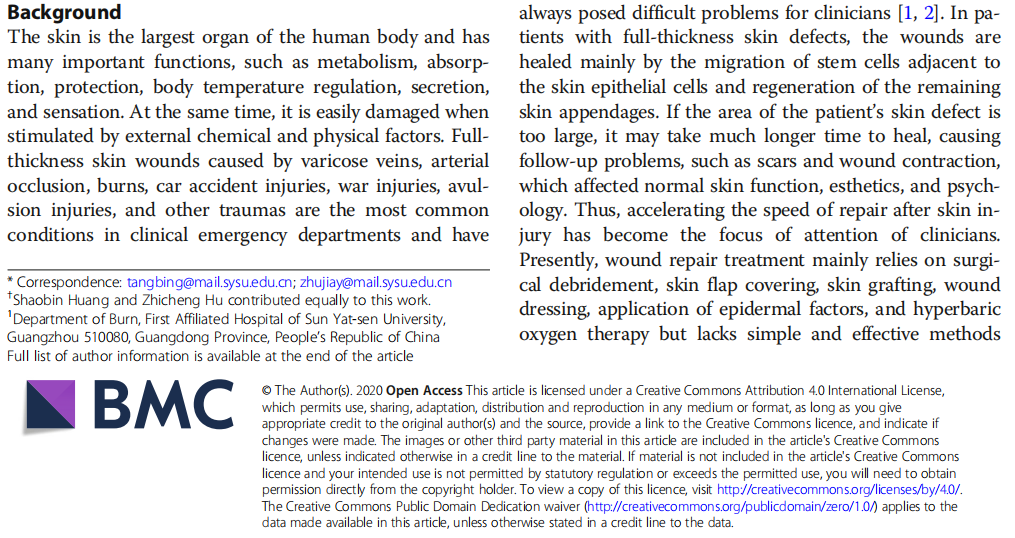
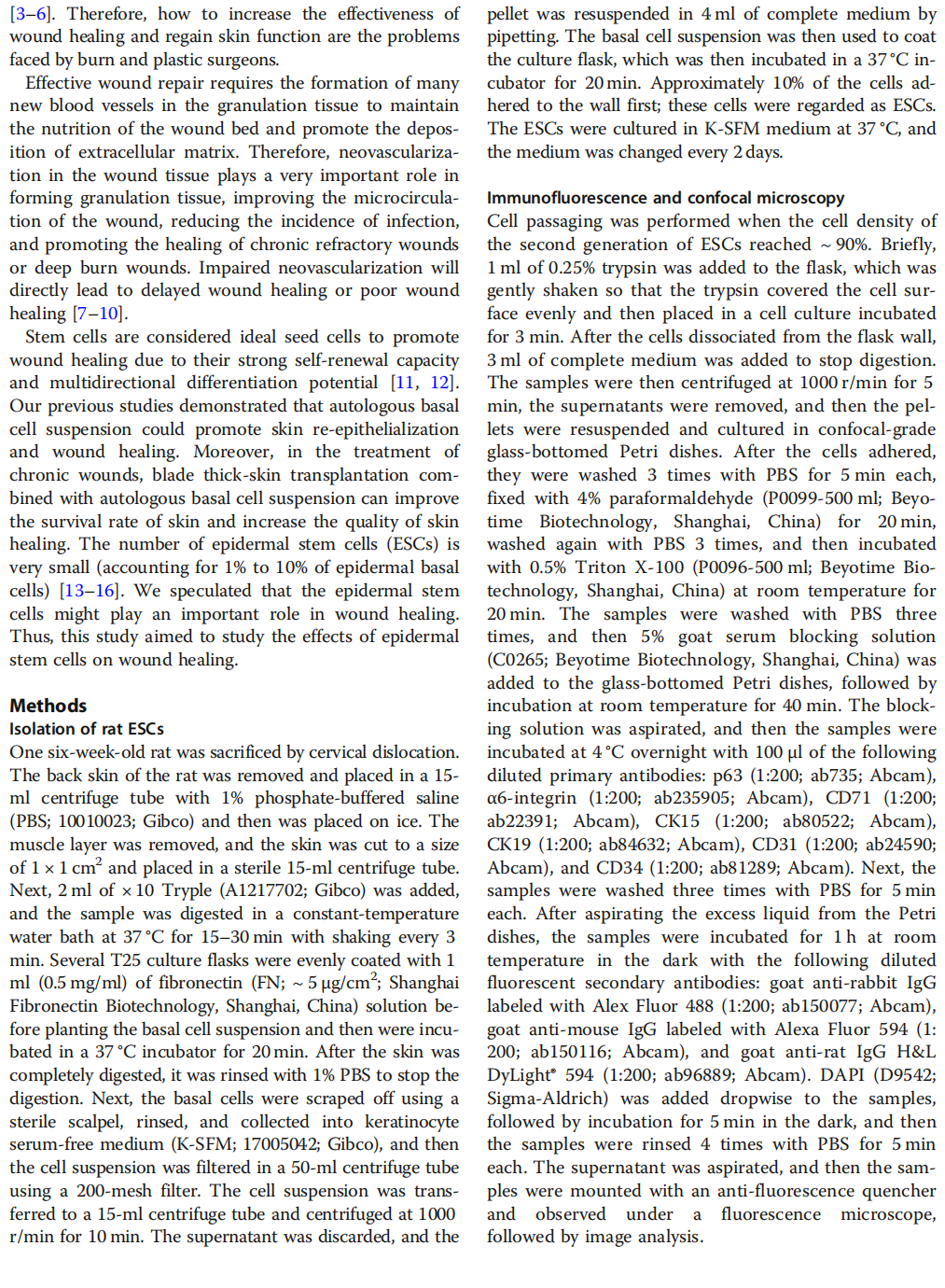
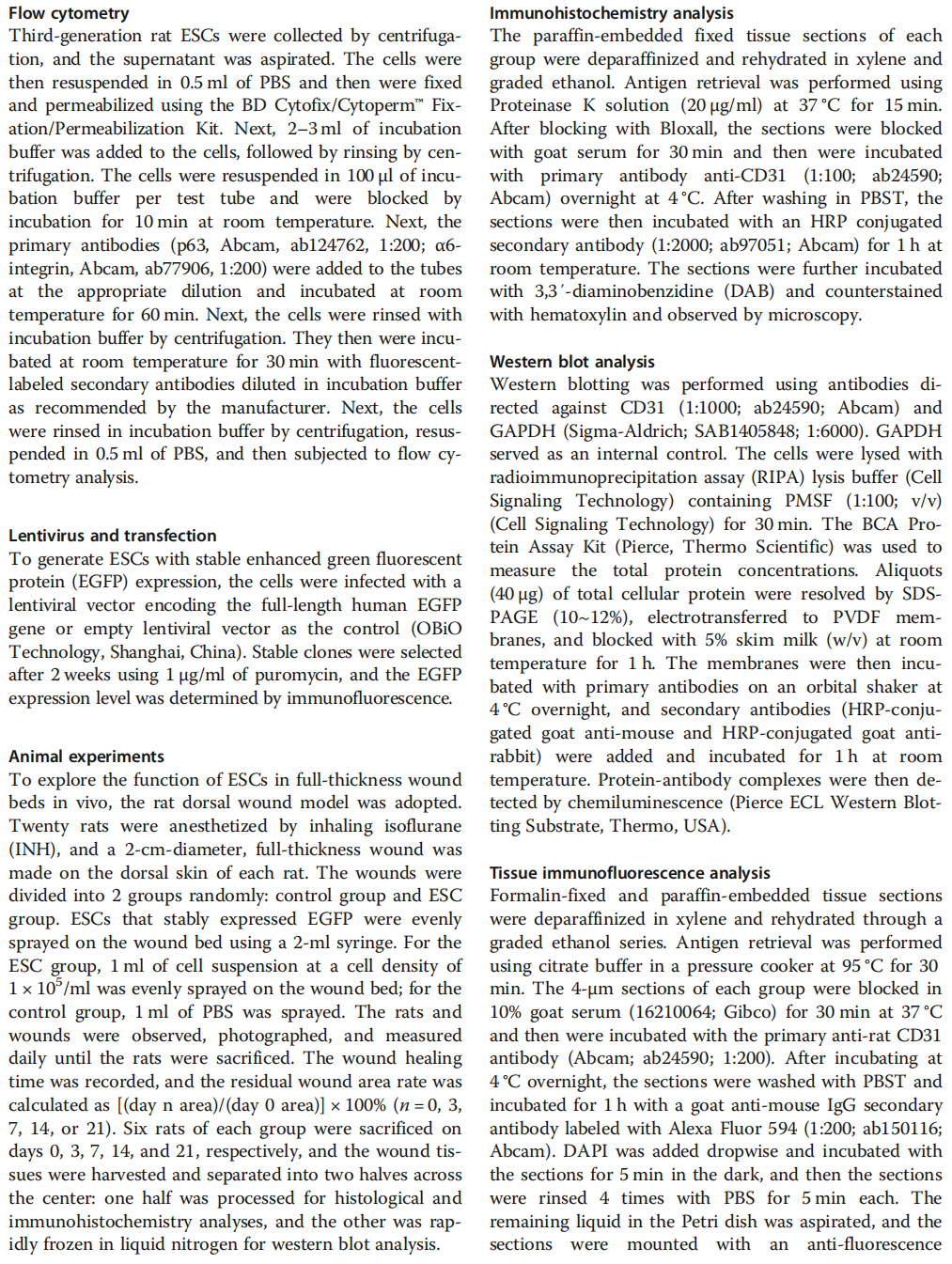

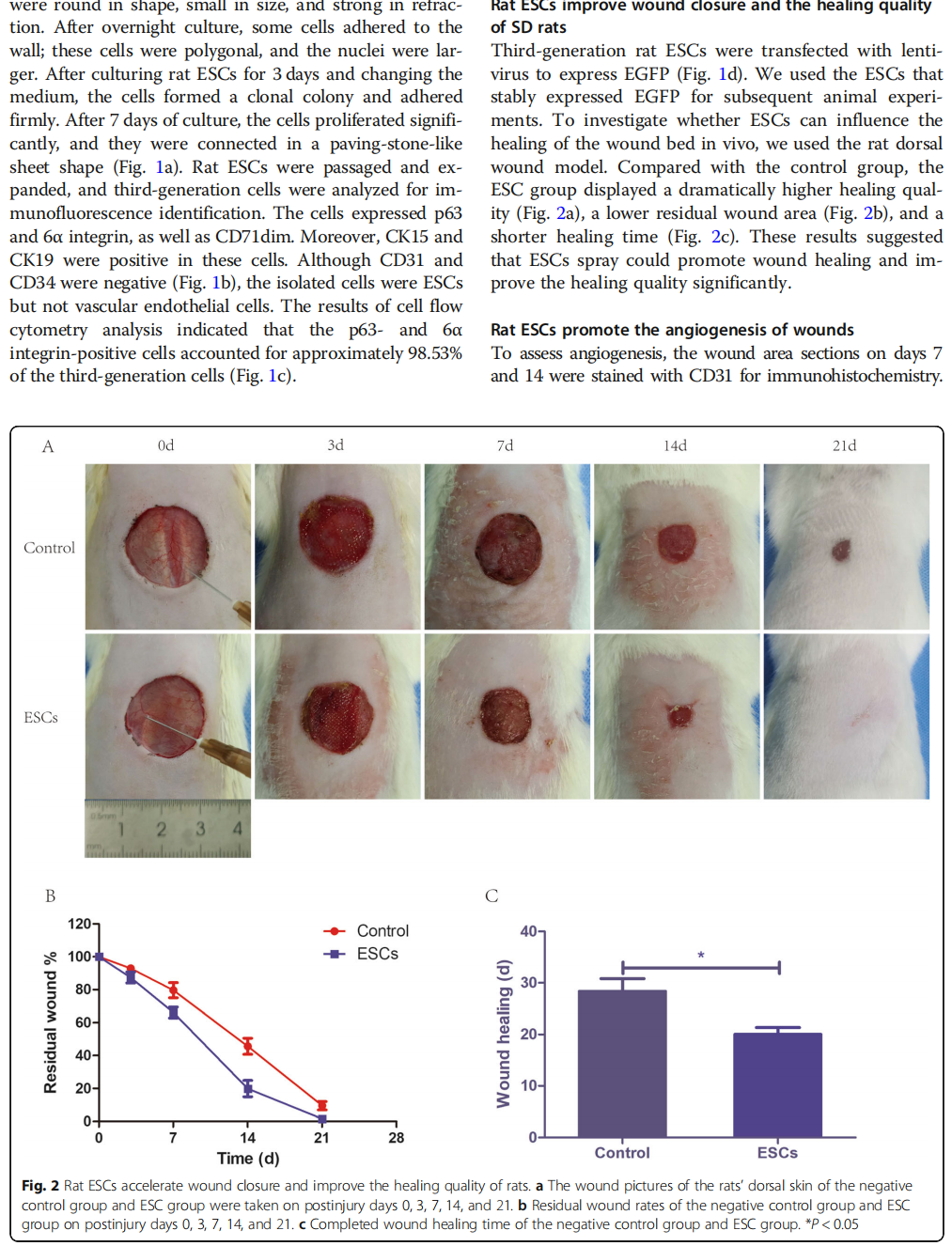
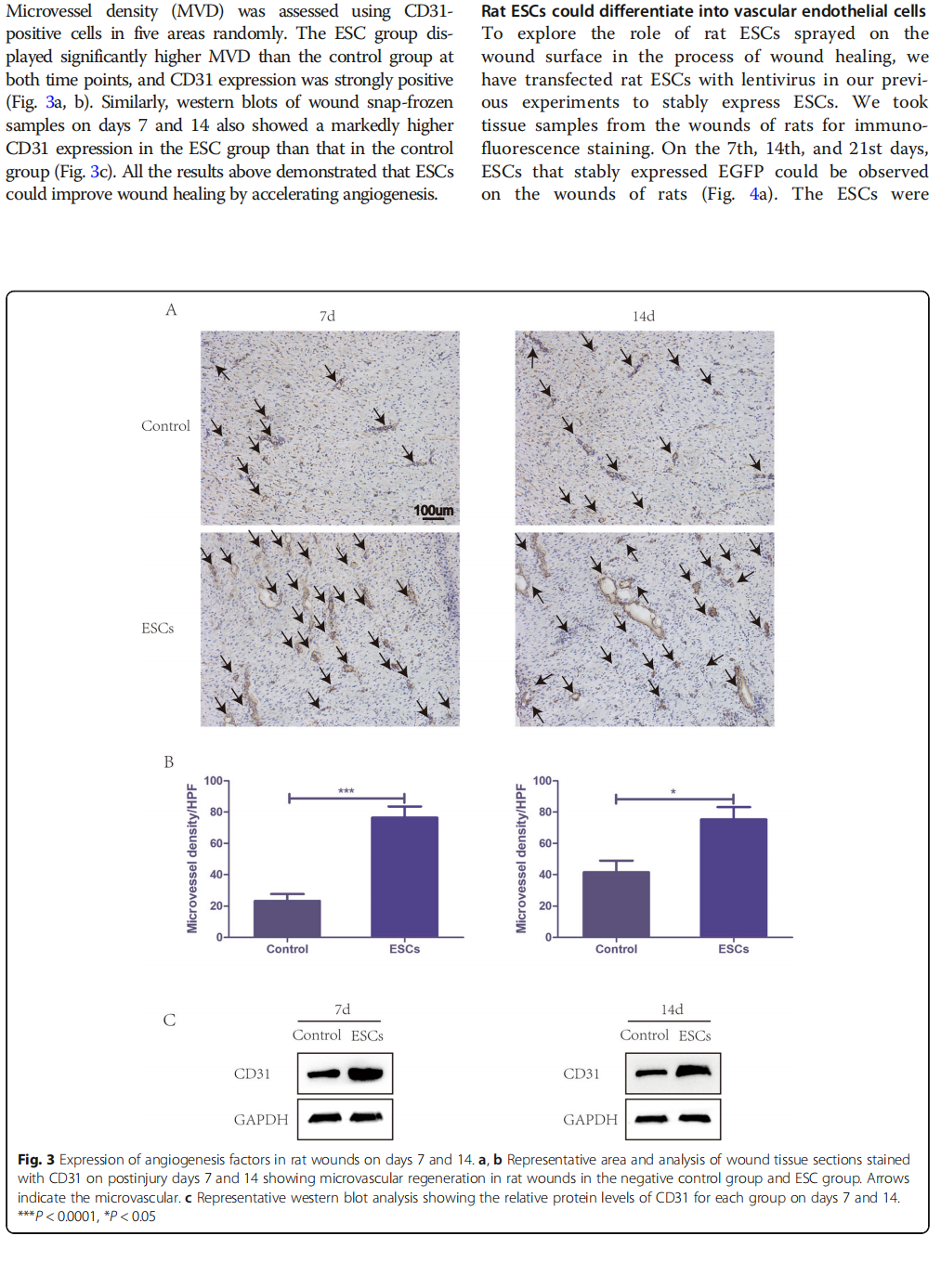
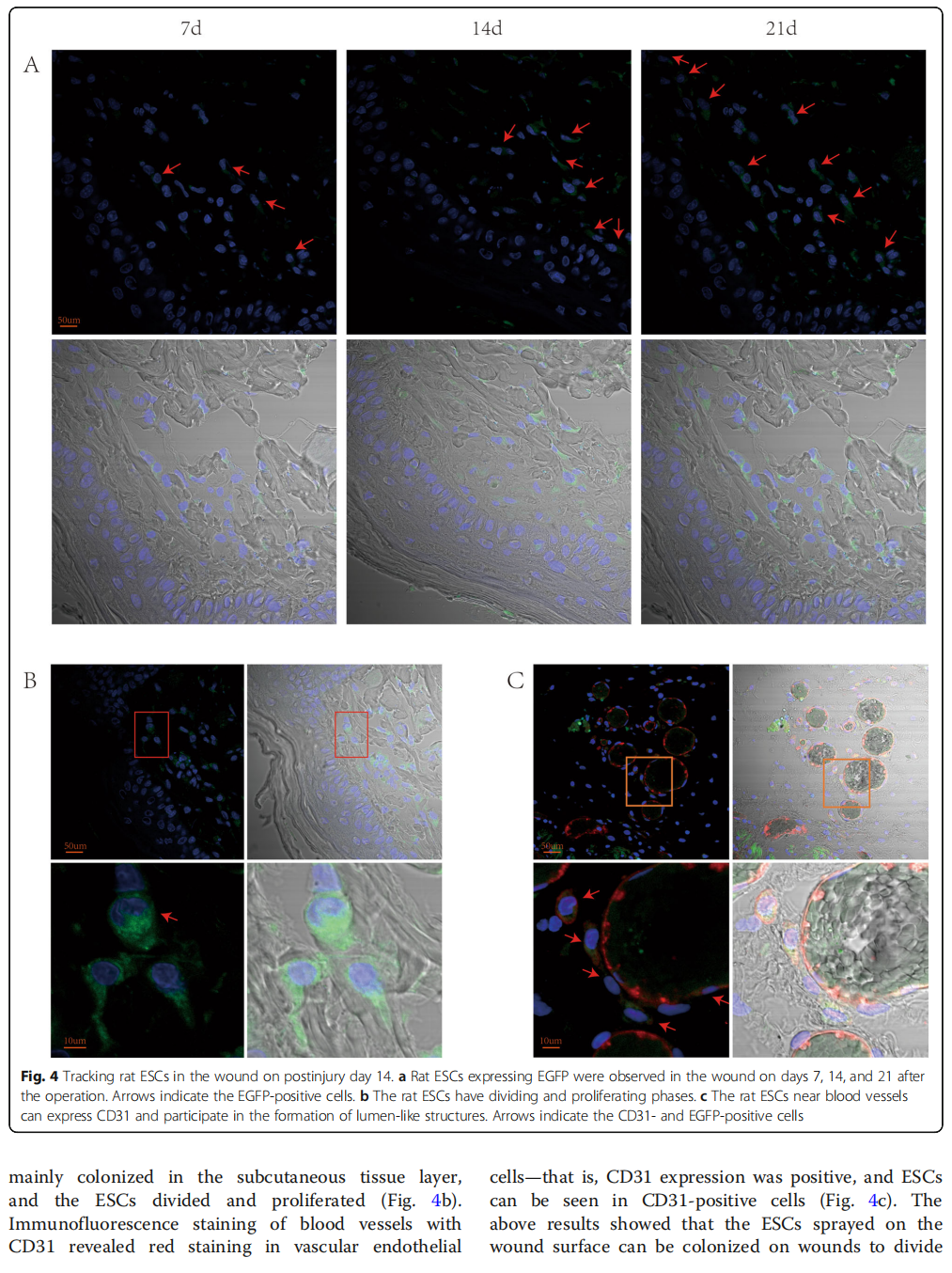
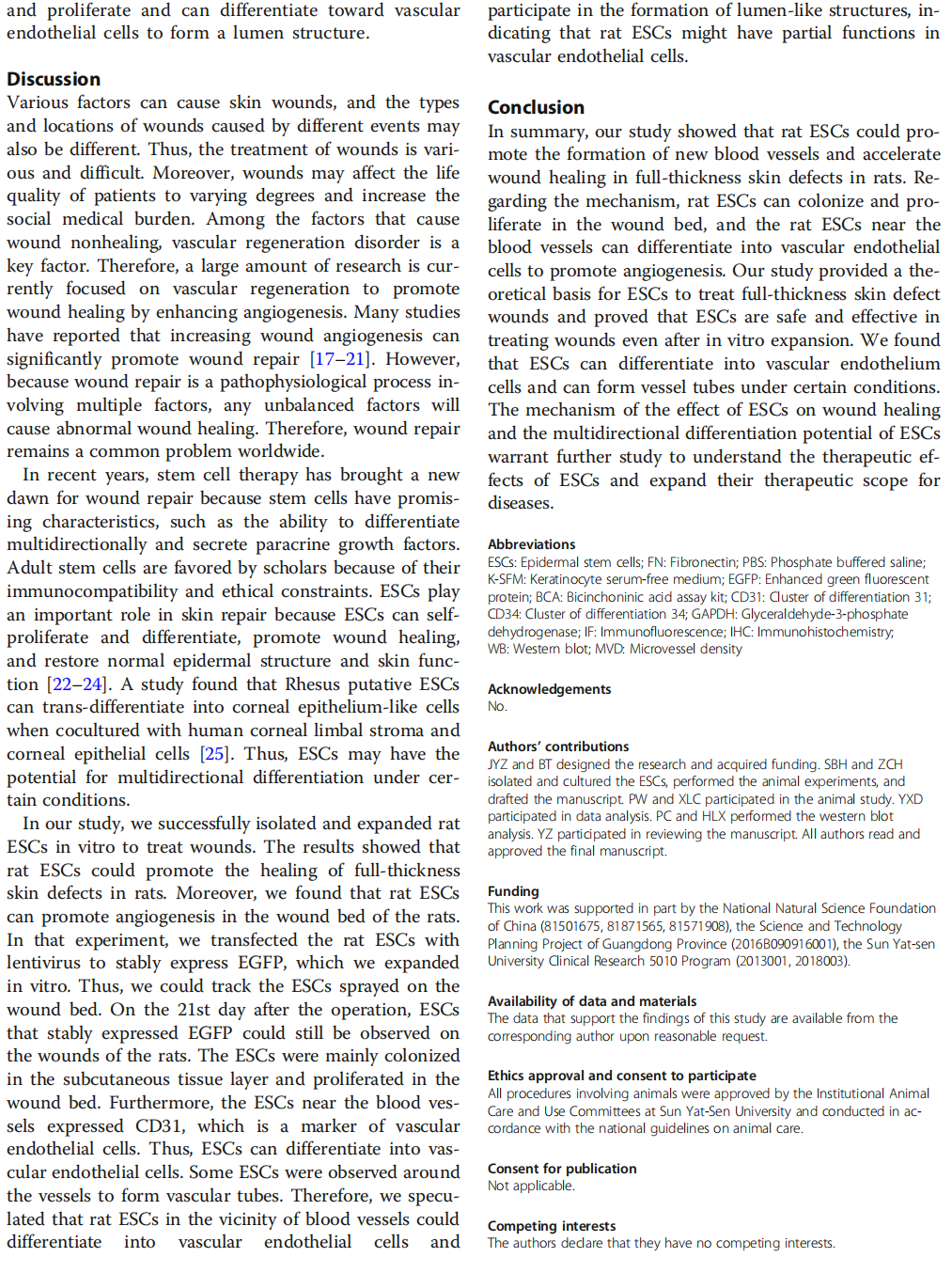
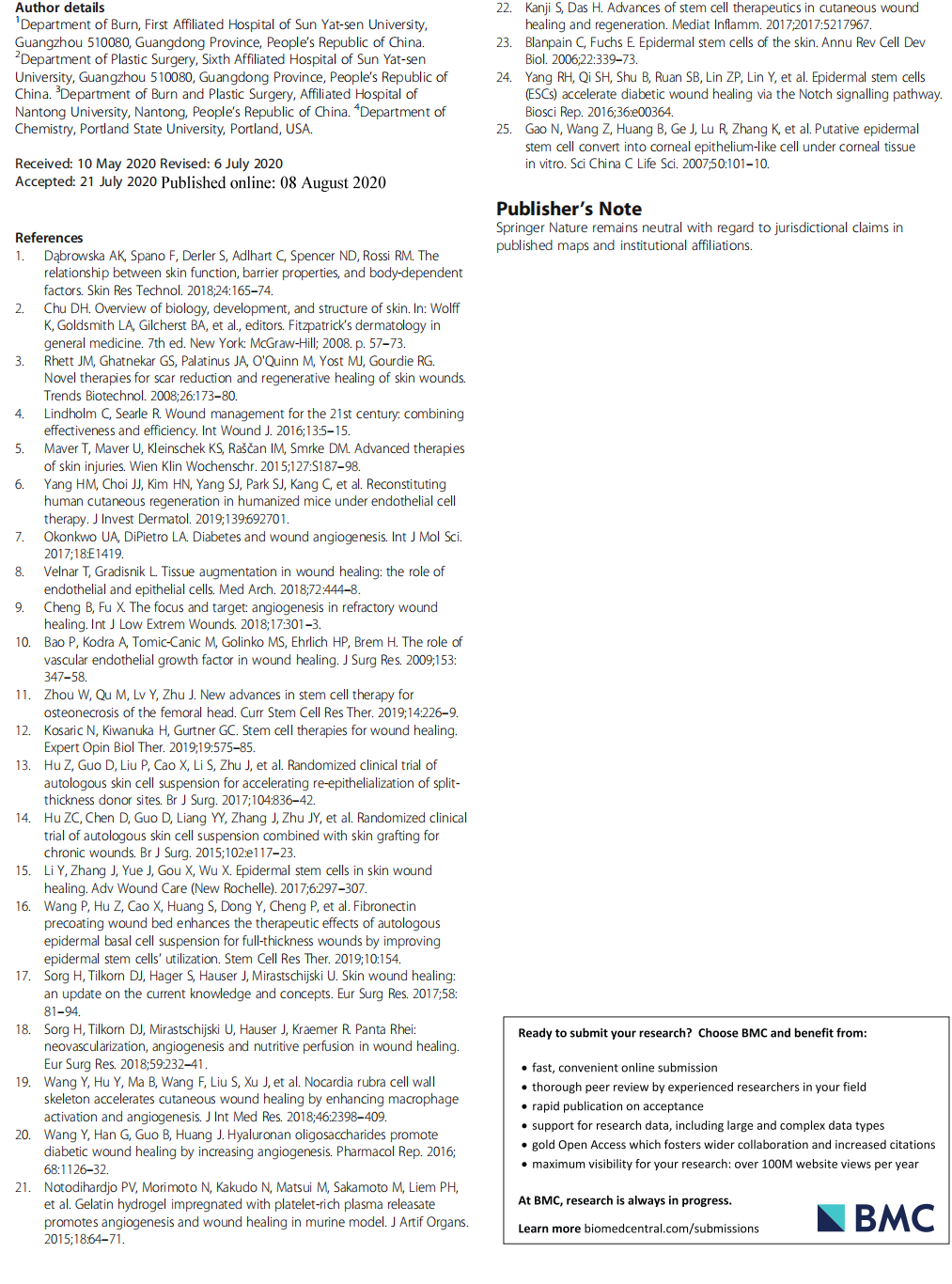
This is excerpted from the Huang et al. Stem Cell Research & Therapy (2020) 11:344 by Wound World.
Shaobin Huang1,2† , Zhicheng Hu1† , Peng Wang1 , Yi Zhang3 , Xiaoling Cao1 , Yunxian Dong1 , Pu Cheng1 , Hailin Xu1 ,
Wenkai Zhu4 , Bing Tang1* and Jiayuan Zhu1*
Abstract
Background: Full-thickness wounds severely affect patients’ life quality and become challenging problems for clinicians. Stem cells have great prospects in the treatment of wounds. Our previous study confirmed that autologous basal cell suspension could promote wound healing, and epidermal stem cells (ESCs) were detected in the basal cell suspension. Herein, this study aimed to explore the effect of ESCs on full-thickness wounds.
Methods: Rat ESCs were isolated and expanded and then were transfected with lentivirus to stably express enhanced green fluorescent protein. The experimental rats were randomly divided into 2 groups: in the ESC group, the rat ESCs were sprayed on the full-thickness wounds of rats; in the control group, phosphate-buffered saline was sprayed the on the wounds. Next, wound healing and neovascularization were evaluated. Colonization, division, and differentiation of ESCs on the wound were analyzed by immunofluorescence.
Results: The rat ESCs colonized, divided, and proliferated in the wound. Additionally, rat ESCs around blood vessels differentiated into vascular endothelial cells and formed a lumen-like structure. Compared with the control group, the ESC group showed enhanced angiogenesis and accelerated wound healing.
Conclusions: Our study confirmed that rat ESCs are safe and effective for treating full-thickness wounds. Additionally, under certain conditions, ESCs can differentiate into vascular endothelial cells to promote angiogenesis and wound healing.
Keywords: ESCs, Cell differentiation, Angiogenesis, Full-thickness wounds









This is excerpted from the Huang et al. Stem Cell Research & Therapy (2020) 11:344 by Wound World.
